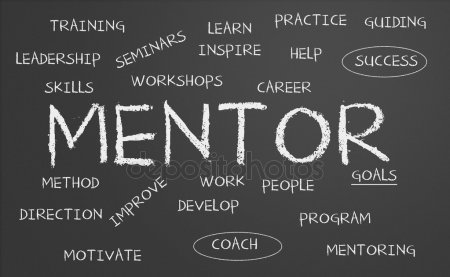by Robert Herjavec

Founder of Herjavec Group | Shark on ABC’s Shark Tank | Bestselling Author
Finding a mentor can be hard. Many people don’t know how to approach someone, what to say, and frankly, many don’t even understand the value of a true mentor-mentee relationship.
Whether in your professional life or your personal life, a mentor-mentee relationship is one of the most important relationships you will have. No matter how successful you become, you can always learn more.
 Mentorship is about a series of moments with key individuals you’re learning from. We try to encourage mentorship in a variety of ways here at Herjavec Group—from running formal programs to encouraging coffee chats with executives.
Mentorship is about a series of moments with key individuals you’re learning from. We try to encourage mentorship in a variety of ways here at Herjavec Group—from running formal programs to encouraging coffee chats with executives.
But here’s the thing… There are a lot of myths about mentorship—it’s time to cut the noise.
Myth #1: You should formally request a mentor relationship.
False! In my opinion, you don’t want to flat out ask, “Will you be my mentor?” Instead, take a keen interest in the mentor and validate that individual. It can be as simple as offering to buy someone a coffee! Ask questions, listen, engage. Sounds simple enough, but it can go wrong.
One thing that’s important to me is that you find a mentor in an unselfish way. Nobody wants to feel used. Don’t pursue someone just because you think they’re going to hire you or position you for a promotion. That’s not mentorship.
You have to really ask yourself: Why do you want to connect? What are you hoping to get out of it? What will the mentor get out of it? What do you see in the person that you admire?
In a true mentor-mentee relationship, there’s a purpose to your conversations—both sides are trying to get something out of it. Make this relationship matter because it is a very rewarding one.
 Myth #2: Your mentor should be outside your current organization or above you on the pay scale.
Myth #2: Your mentor should be outside your current organization or above you on the pay scale.
Wrong! You can still consider peers as mentors if you’re leveraging the relationship for consistent guidance and learning.
Yes, most like you’ll look for a more senior executive for advice or recommendations. Your senior leaders have been through what you’re going through. Nobody was born into a CEO or COO position. They’ve worked through a lot of obstacles to get to their current role, and I guarantee that they’ve made a lot of mistakes along the way. (I know I have.)
With that said, we all have busy lives. So, take what you can get! Maybe you’re new to an industry, and you want to learn about the inner workings from a peer? Maybe someone you know is a great presenter and you want to pick their brain? Maybe it’s a quick coffee or a car ride to an event that kick starts an interesting conversation. Mentor-mentee relationships can start anywhere, so be observant, and don’t discriminate based on org level. You should always be open to learning from those around you!

Myth #3: You’re going to have one mentor—forever.
Definitely not! That’s unrealistic. As you progress in your career, you’ll learn from different people in your life. Be open to that and be considerate of the purpose of each relationship. Maybe one mentor helps influence your decisions as a parent … maybe someone else is helping you adapt to a new industry. There is no rule that says you can only have one so continue to network and be curious. Getting various points of view on your experiences and ideas will help set you on the right path.
I get a lot of messages on social media from college students and hopeful entrepreneurs in particular asking me to be their mentor. What did I say about asking directly? Unfortunately, I can’t realistically do that across the board, but I wanted to share a few closing thoughts about why mentorship is so important
- You have to be curious. Keep learning! There’s no end to this. You have to constantly be upping your game and learning from those around you.
- You have to position yourself. Don’t expect anyone to do it for you. Become comfortable presenting, communicating who you are and what value you bring. Practice this with your mentor and bounce ideas.
- You have to be accountable to your goals. Ambition without execution = failure in my books! Set goals for yourself, and share them with your mentor. Get their insights on how to move forward.
 Finding someone to learn from doesn’t have to be a formal process. Keep it simple and don’t get sucked in by the myths of mentorship.
Finding someone to learn from doesn’t have to be a formal process. Keep it simple and don’t get sucked in by the myths of mentorship.
Ask questions, listen and recognize that learning opportunities are all around you.
